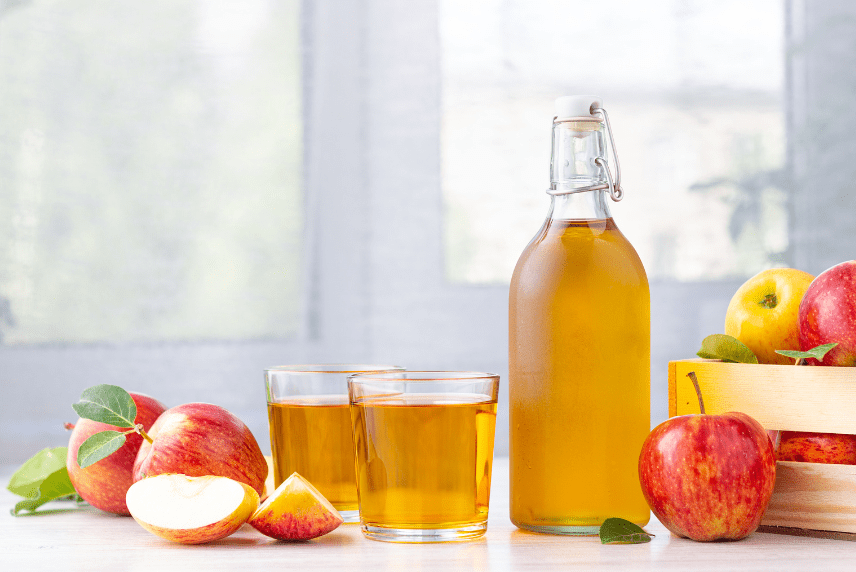
Why Am I So Bloated?
A poochy belly or gassy bloated feeling can really affect your life in a not-so-fun way. Here’s what’s going on with bloating and how to cope.
If you’re regularly struggling with that uncomfortable distended belly feeling, you’re not alone. There are many culprits behind bloating and, thankfully, lots of things you can do to get some relief.
A lot of times, bloating is linked to digestion, gut health and the microbiome. It’s all very circular — you’re stressed and not breaking down food properly. You’re dealing with inflammation caused by gluten, dairy, corn, soy and sugar and your microbiome balance is off.
Here’s a breakdown of possible bloating causes and what to do:
Gut Health & Microbiome Imbalance
Your gut is home to trillions of bacteria, and if there’s an imbalance (i.e., too many bad bacteria, not enough good ones), it can lead to bloating, gas, and discomfort. Dysbiosis, or microbial imbalance, can occur due to poor diet, stress, antibiotics, or certain health conditions.
What you can do:
- Probiotics: Introducing good bacteria can help restore balance. You can take probiotic supplements or include fermented foods like kefir, yogurt, kimchi, sauerkraut, and kombucha in your diet.
- Prebiotics: These are foods that feed the good bacteria in your gut. Think fiber-rich foods like bananas, onions, garlic, asparagus, artichokes and leeks.
- Fiber Balance: While fiber is essential for gut health, too much can sometimes contribute to bloating, especially if your body isn’t used to it. Gradually increase fiber in your diet if you think it’s too low and/or use a sharp blade (blender/food processor) or heat (roast veggies, grill, sauté) to partially break down the fibers before you eat them. This makes for easier digestion.
Poor Digestion or Slow Digestion
If your digestive system isn’t breaking down food effectively, it can lead to bloating. Issues like low stomach acid (which helps break down food) or digestive enzyme deficiencies can cause undigested food to ferment in the gut, causing gas and bloating.
What you can do:
- Digestive Enzymes: Supplementing with enzymes that help break down protein, fat, and carbohydrates might be beneficial. You can also try eating more enzyme-rich foods like pineapple and papaya.
- Apple Cider Vinegar and Lemon Water: Some people find that drinking a glass of water with a tablespoon of apple cider vinegar before meals can help increase stomach acidity. Try starting your day with a glass of lemon water (squeeze half a lemon into lukewarm tap water) to kickstart your digestion.
- Chew Your Food Well: This helps aid the digestive process and reduces the amount of work your stomach has to do.
Food Sensitivities & Intolerances
Certain foods might trigger bloating, especially if your body has trouble digesting them. Common standard American diet culprits include dairy, gluten, corn, soy, sugar and sometimes cruciferous vegetables like broccoli and cauliflower.
What you can do:
- Food Elimination: Try eliminating common irritants for a while, like dairy or gluten, to see if bloating improves.
- Low FODMAP Diet: This is a temporary diet that involves cutting out foods that are poorly absorbed in the small intestine. It has been shown to help with bloating, particularly in people with IBS.
- Still can’t figure out your food issues? We have a great blood-pinprick test that we use to gather more intel. Reach out for details.
Constipation or Slow Transit Time
If food isn’t moving through your digestive system efficiently, you could experience bloating due to the buildup of waste. This can be caused by dehydration, lack of fiber, or a sedentary lifestyle.
What you can do:
- Hydration: Make sure you’re drinking enough water, as dehydration can slow down digestion and lead to bloating.
- Physical Activity: Regular exercise helps promote normal bowel function and reduces bloating. Even just a short walk after meals can help.
- Fiber Intake: As mentioned earlier, fiber is crucial, but make sure you’re getting the right amount. Too little can cause constipation, and too much too quickly can cause bloating.
We hope these tips and diet and lifestyle changes can help ease the bloat and get you back on track. For one-on-one help with finding your personalized nutrition plan, reach out for a complimentary 20-minute consultation with Healthy Nest owner Robin Hutchinson.
